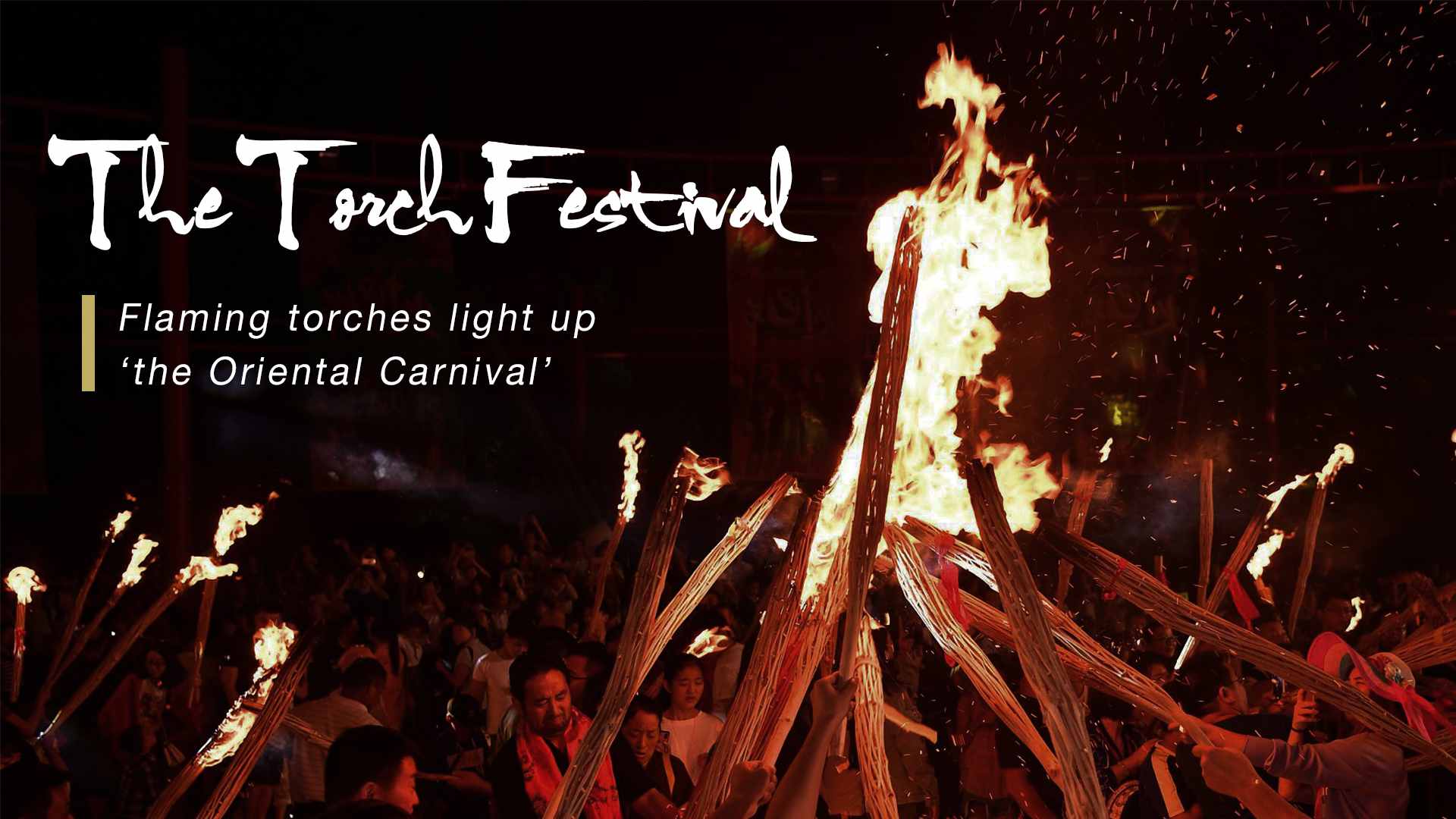The annual torch festival in southwestern China has earned a reputation as the “the Oriental Carnival.”
Burning torches light up the summer nights as women and men, young and old dance and sing traditional folk songs around a campfire.
Falling between 24th and 26th in the sixth lunar month, the Liangshan Yi Torch Festival, which kicked off on Aug. 5, is considered by the Yi ethnic group as one of its most important and solemn celebrations.
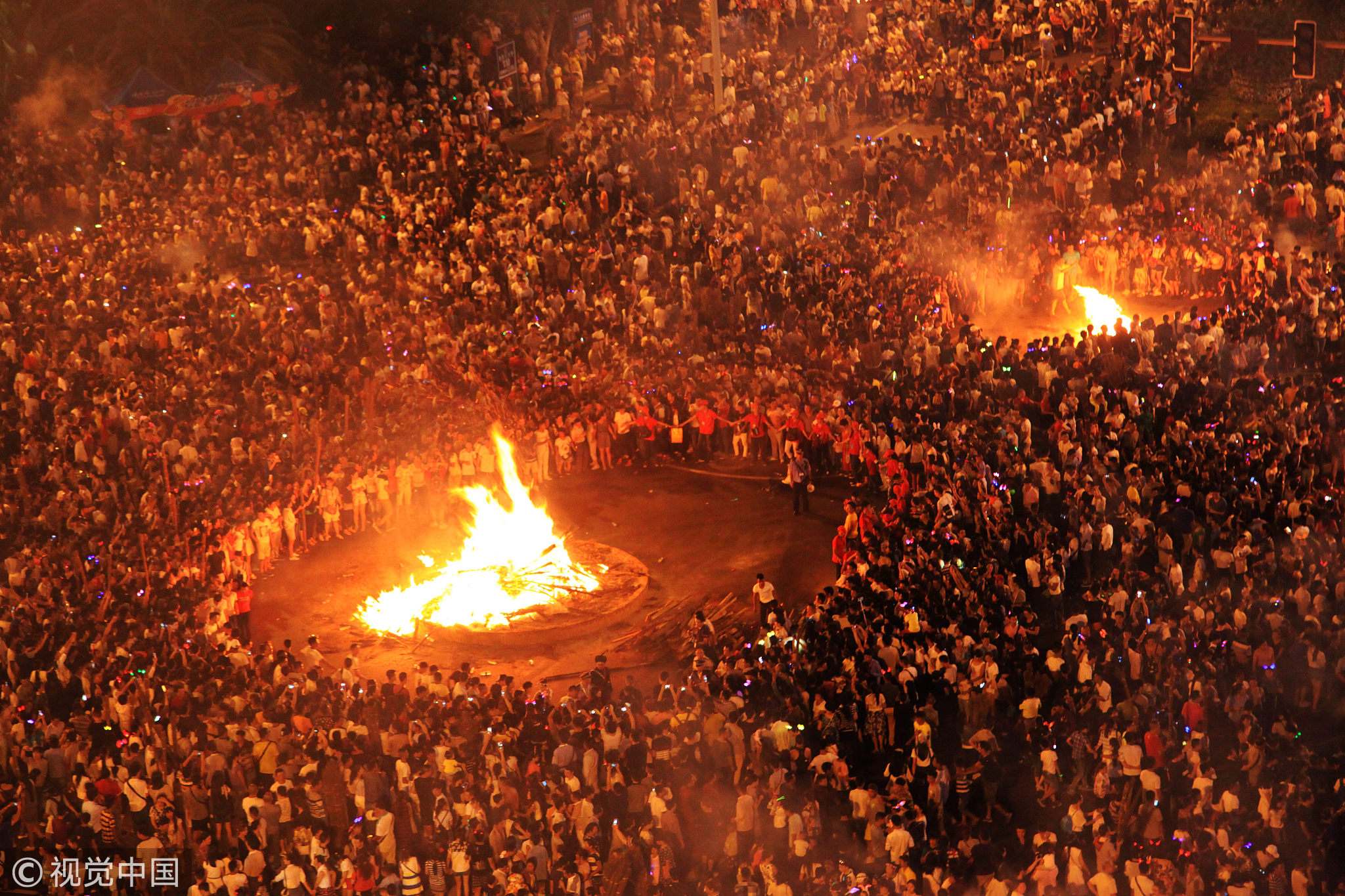
The Liangshan Yi Torch Festival kicks off in Liangshan Yi Autonomous Prefecture, southwest China's Sichuan Province, July 27, 2017. /VCG Photo
The Liangshan Yi Torch Festival kicks off in Liangshan Yi Autonomous Prefecture, southwest China's Sichuan Province, July 27, 2017. /VCG Photo
It is also widely celebrated among other ethnic groups, including Bai, Naxi, Hani, Lahu and Pumi people in the southwestern provinces of Sichuan, Yunnan and Guizhou.
As a dominant event among the Yi and Bai people, the torch festival held in Sichuan and Yunnan was inscribed into the first batch of The National List of Intangible Cultural Heritage of China on May 20, 2006.
Burning torches for plenty and peace
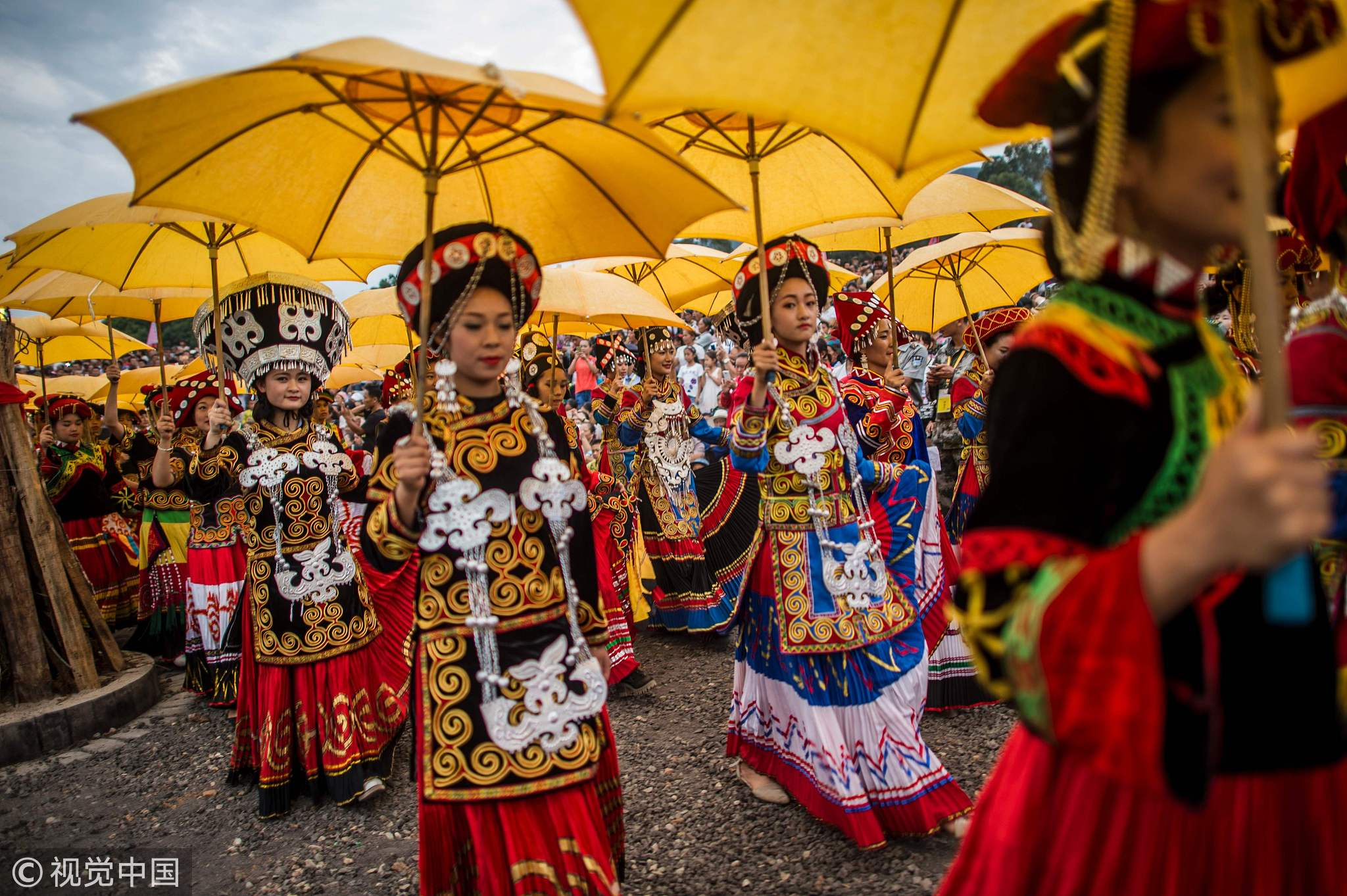
Dancers dressed in traditional Yi costumes perform at the torch festival in Xichang, southwest China on July 27, 2016. /VCG Photo
Dancers dressed in traditional Yi costumes perform at the torch festival in Xichang, southwest China on July 27, 2016. /VCG Photo
The festival was originally called the “Xinghui Festival” (means “Star Returning Festival”) in ancient times. According to some scholars, Yi and Bai people used their own calendar in the past, which contains two Star Returning Festivals, falling in summer and winter.
The festivities mark a happy ending of the first half of the year and offer prayers for a new half-year of plenty and peace. They include activities such as wrestling, bullfighting and horse racing.
During the festival, people wearing colorful traditional ethnic costumes gather to enjoy nights of fire and send each other wishes for a better life.
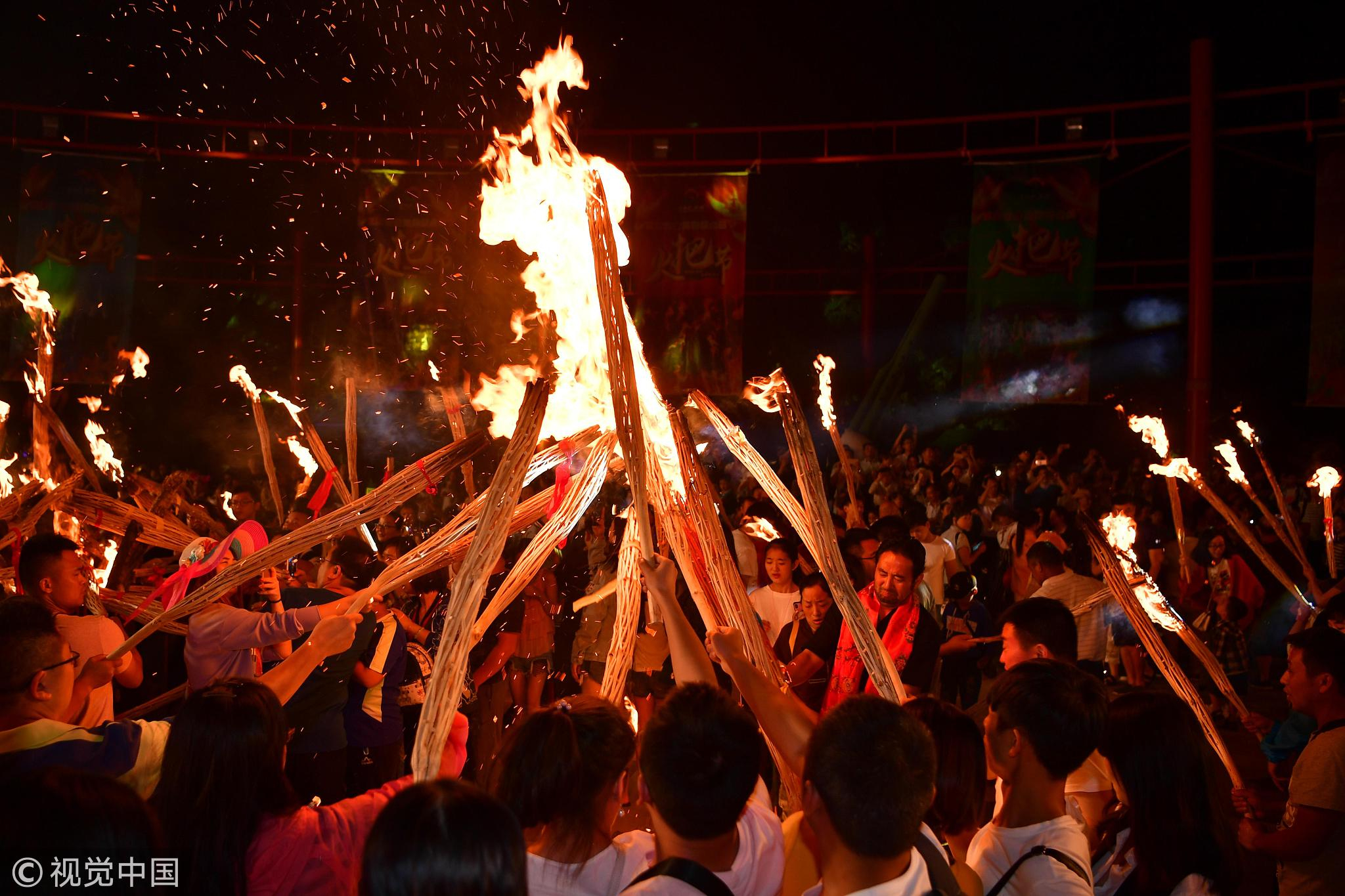
Visitors participate in the Torch Festival held in the Yunnan Ethnic Villages in Kunming, capital of Yunnan Province, SW China, Aug. 2, 2018. /VCG Photo
Visitors participate in the Torch Festival held in the Yunnan Ethnic Villages in Kunming, capital of Yunnan Province, SW China, Aug. 2, 2018. /VCG Photo
Burning torches represent the prosperity in the future life and show the great significance of the image of fire among ethnic groups living in the mountainous region. People make the fire – flaming torches and bonfires – to light up the roads and warm their bodies as well as repel insects and beasts.
Fire became the symbol of the strong spirit to overcome all the difficulties and the endless passion for life. In this sense, the celebrating activities, though with slight differences among the groups, share the common highlight of fire.
Play fire, sing for life
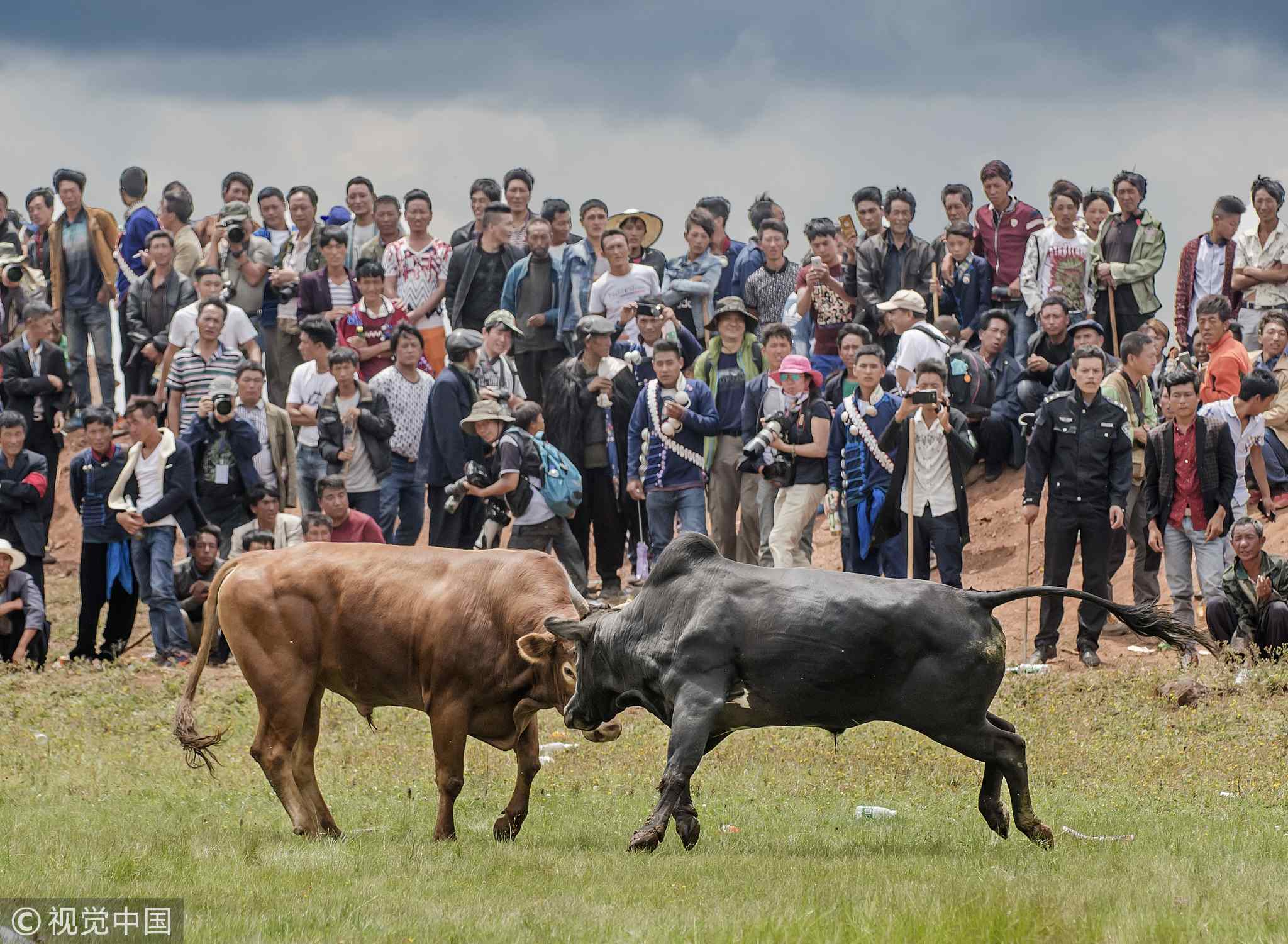
July 21, 2016: Bullfighting at the torch festival in Liangshan Yi Autonomous Prefecture, southwest China's Sichuan Province. /VCG Photo
July 21, 2016: Bullfighting at the torch festival in Liangshan Yi Autonomous Prefecture, southwest China's Sichuan Province. /VCG Photo
The Bai and Naxi ethnic communities who live in the mountain areas connecting Lijiang and Heqing in Yunnan Province will decorate all the big trees in the village with clusters of red flowers to illustrate the “burning” of the big trees and their transformation into big “torches.”
When the villagers see the first star appear in the sky, they light the little real torches, holding them in hand as they dance and sing around the big “torch” trees which they call “play fires.”
The Pumi ethnic group in Ninglang County, Lijiang conducts a grand sacrifice to the Goddess of Fire, Anggumi, singing and dancing in a circle around the representative tree of her as they believe that she brought fire to the earth by burning herself as a torch according to ethnic myth.

Several Yi ethnic men perform at the Torch Festival held in the Yunnan Ethnic Villages in Kunming, capital of Yunnan Province, SW China, Aug. 2, 2018. /VCG Photo
Several Yi ethnic men perform at the Torch Festival held in the Yunnan Ethnic Villages in Kunming, capital of Yunnan Province, SW China, Aug. 2, 2018. /VCG Photo
While based on their legend, people living in Huangping, Heqing County, play with fire and sing for the seeds on the 24th in the sixth lunar month to commemorate the day when the first seed was sowed and pray for a rich harvest.
When night falls, the kids and the old dance around the fields, holding torches in hand, and at the same time, the young spread the seeds in the fields. The celebration combined with agricultural activities is not too often seen during the Torch Festival.
Bonfires see the flames of love
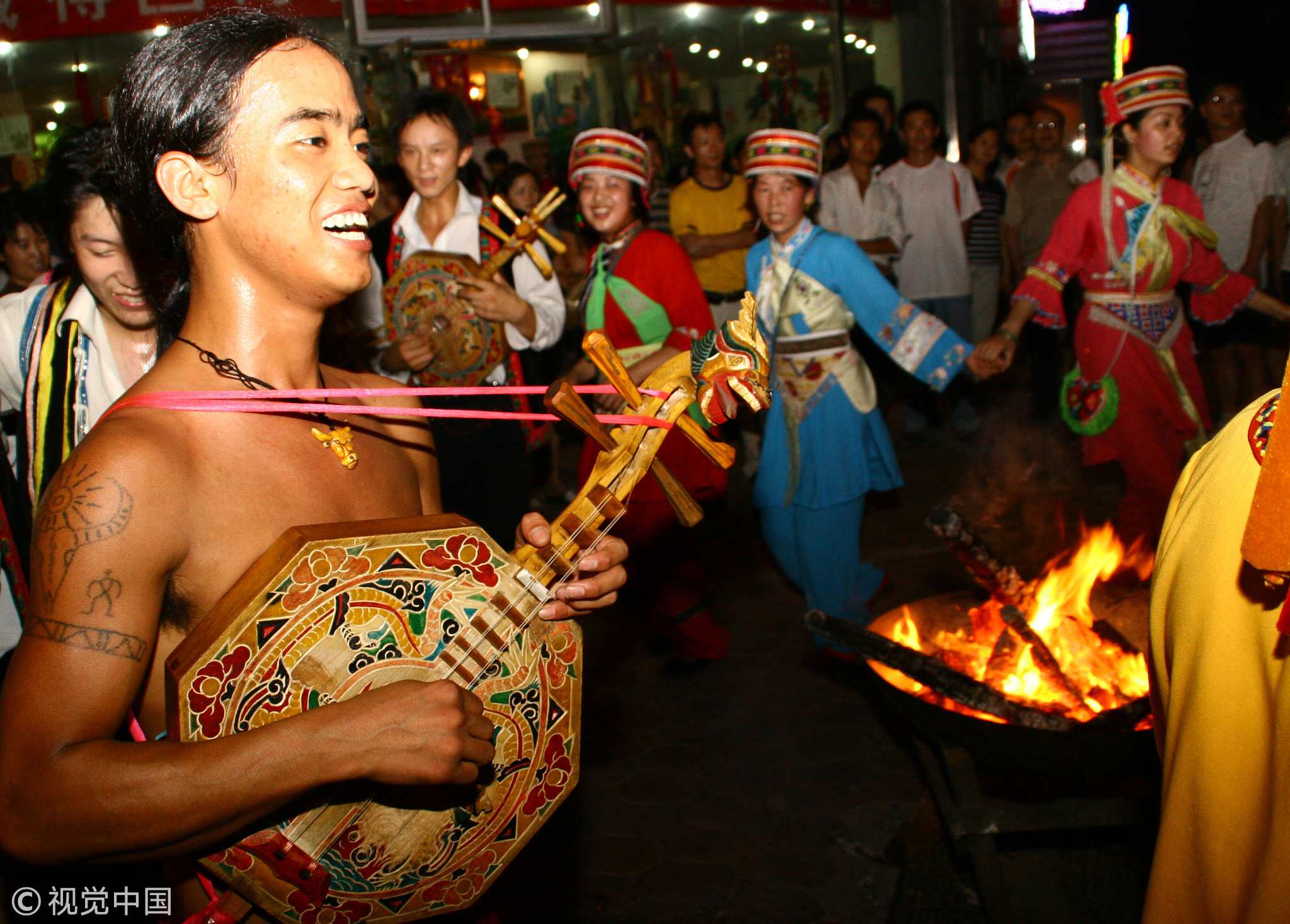
Men and women do the Dasanxian folk dance at the Torch Festival held in the Yunnan Ethnic Villages in Kunming, SW China, Aug. 3, 2007. /VCG Photo
Men and women do the Dasanxian folk dance at the Torch Festival held in the Yunnan Ethnic Villages in Kunming, SW China, Aug. 3, 2007. /VCG Photo
With piles of faggots several meters high erected in the center of a square, the bonfire party climaxes the festival with the sound of gongs and horns.
Cheerful flames leaping up to the sky shine on the joyful faces.
The festival’s highlight features women and men in pairs facing one another doing the Dasanxian folk dance named after the large three-stringed Chinese instrument. Men play the tri-chord instrument and women kick and clap to the tempo.
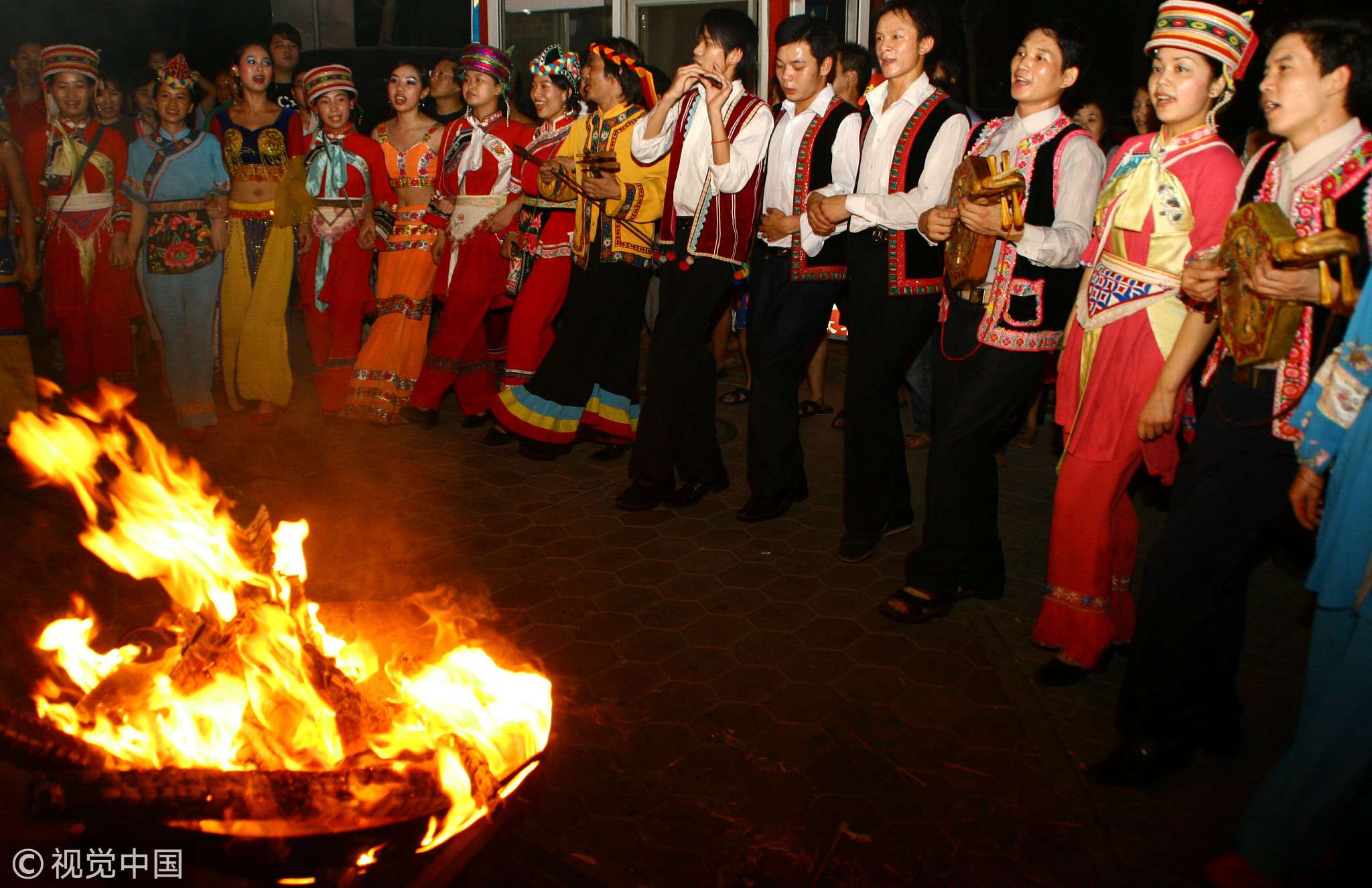
Men and women do the Dasanxian folk dance at the Torch Festival held in the Yunnan Ethnic Villages in Kunming, SW China, Aug. 3, 2007. /VCG Photo
Men and women do the Dasanxian folk dance at the Torch Festival held in the Yunnan Ethnic Villages in Kunming, SW China, Aug. 3, 2007. /VCG Photo
This assembly is a perfect chance for many singles to find their partners, using their costumes to send “messages.”
A young man will snatch away the embroidered belt of the young woman he chooses. If the woman returns his love, she would allow him to woo her. If not, she will put on another belt, leaving the man keep the “stolen” one.
(Cover image by Du Chenxin)

